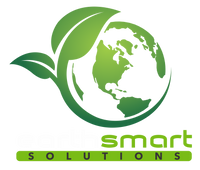A Simple Guide to Preventing FOG Build-Up in Wastewater & Septic Systems

A Relatable Kitchen Moment We’ve All Had 🌿
We’ve all been there—you finish cooking, look at the greasy pan, and think:
“It’s just a little oil… it’ll wash away with hot water, right?”

Unfortunately… not quite.
What looks like liquid when warm often hardens as it cools, sticking to the inside of pipes like glue. Over time, those small amounts of grease build up into a thick layer that blocks drains, clogs septic systems, and contributes to major wastewater issues downstream.
And the truth is: FOG (fat, oil & grease) build-up is almost always preventable with a few simple habit changes.
This guide will walk you through easy, practical FOG prevention tips for:
- Homeowners & septic system users 🏡
- Restaurants & commercial kitchens 🍽️
- Industrial facilities 🏭
- Municipal wastewater systems 🏙️
…so you can protect your pipes, avoid costly repairs, and support a healthier environment.
What Is FOG & Why Does It Build Up? 💧
FOG stands for fat, oil, and grease—substances that enter plumbing and wastewater systems from everyday activities such as:
- Cooking oils and grease
- Butter, lard, and shortening
- Meat fats and dairy products
- Sauces, dressings, gravies
- Food scraps and residues washed down the drain
When FOG enters pipes:
- It cools and solidifies
- It coats inner pipe walls
- Over time, it builds up into thick layers
- Blockages, odours, backups, and system failures occur

FOG doesn’t dissolve in water—and hot water only moves it further down the system before it hardens again.
This is why prevention matters more than reaction.
Simple FOG Prevention Tips for Homes & Septic Systems 🏡
Small changes in everyday kitchen habits can prevent costly plumbing and septic issues. Here are practical, easy steps anyone can take:
1. Let Grease Cool & Scrape It Into the Trash
Never rinse grease or oily food scraps down the drain.
Instead:
- Let fats/oils solidify
- Scrape into a container or the garbage
Why it matters: Even small amounts of grease harden in pipes, contributing to clogs and septic scum buildup.
2. Wipe Greasy Dishes Before Washing
Before placing dishes in the sink or dishwasher, wipe pans, plates, and utensils with a paper towel.
Why it matters: This removes up to 90% of grease that would otherwise enter your plumbing system.
3. Use a Sink Strainer
Catch food solids before they go down the drain.
Why it matters: Food scraps carry oils and grease that break down later inside your system, adding to sludge.
4. Never Pour Oil Down the Drain—Recycle It Instead
Store used cooking oil in a container.
Homeowners can:
- Dispose of with household waste (check local rules)
- Bring to oil recycling programs where available
Why it matters: Liquid oils coat pipes and thicken as they cool.
5. Add Routine Biological Treatment to Break Down FOG
Adding a biological treatment helps digest fats, oils, and grease before they build up.
A product like FOG Reducer (ESFR) introduces beneficial microorganisms that break down FOG into water and harmless by-products.
Why it matters: It prevents long-term buildup and supports septic health.
FOG Prevention Tips for Restaurants & Commercial Kitchens 🍽️
Commercial kitchens generate high volumes of FOG. Strong kitchen practices keep plumbing, grease traps, and wastewater systems running smoothly.
Recommended steps include:
- Train staff on proper grease disposal
- Dry-wipe cookware and equipment before washing
- Use sink strainers & food scrap capture systems
- Schedule regular grease trap cleaning
- Avoid emulsifying chemicals that “push grease further down the line”
Pro Tip: Add a biological treatment like ESFR FOG Reducer to support grease trap and drain line health between cleanings.
FOG Prevention in Industrial Facilities 🏭
Facilities such as dairy, meat, poultry, cheese, and food processing plants face stronger FOG challenges.
Preventative measures may include:
- Pre-treatment systems and screening
- Staff training programs
- Scheduled biological treatment dosing
- Monitoring of BOD/COD levels
- Routine line flushing that doesn’t rely on chemicals alone
A biological treatment program reduces sludge, odours, and FOG deposits—improving overall wastewater performance.
Municipal FOG Prevention & Community Education 🏙️
Municipalities spend millions responding to FOG-related blockages and sewer backups. Prevention starts with public education and upstream intervention.
Municipal best practices:
- Community FOG awareness campaigns
- Restaurant bylaw compliance and inspections
- Biological treatment dosing at lift stations and trouble zones
- “Wipes & FOG” public messaging
Proactive treatment is far more cost-effective than emergency response.
✅ FOG Prevention Checklist
For Homes & Septic Users:
✔ Scrape grease into the trash, not the drain
✔ Wipe dishes before washing
✔ Use sink strainers
✔ Dispose of or recycle used cooking oil properly
✔ Use biological treatment monthly
For Restaurants/Commercial Kitchens:
✔ Train staff on FOG disposal
✔ Dry-wipe pans and cookware
✔ Maintain grease traps regularly
✔ Avoid chemical degreasers that emulsify grease
✔ Use biological treatment for line & trap health
For Municipal/Industrial Users:
✔ Monitor high-FOG zones and lift stations
✔ Educate community or staff
✔ Add biological treatment as part of routine maintenance
Why FOG Prevention Matters 🌍
FOG build-up may start in the kitchen, but its impact reaches far beyond the home. It affects plumbing, septic systems, treatment plants, the environment—and taxpayers.

By making small changes and adding biological treatment as part of regular system care, you can:
- Prevent costly blockages and backups
- Reduce odours and plumbing issues
- Extend the lifespan of septic and wastewater systems
- Lower maintenance costs
- Support a healthier environment
FOG prevention is simple, proactive, and far more affordable than fixing damage once it’s already done.
Please contact us for more information on our earth-friendly products via email at info@earth-smart-solutions.com or call us at 1-866-444-7174.




Leave a comment